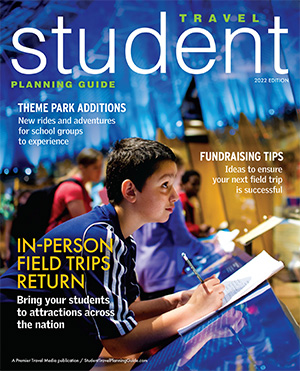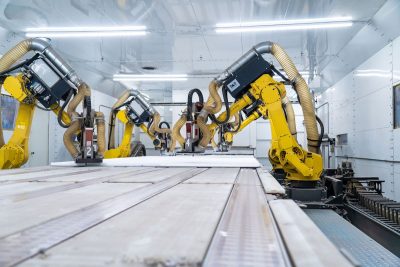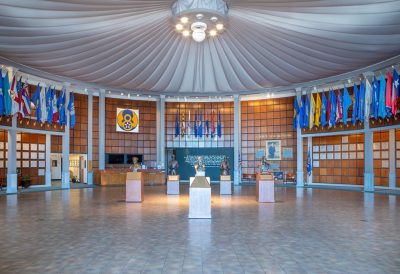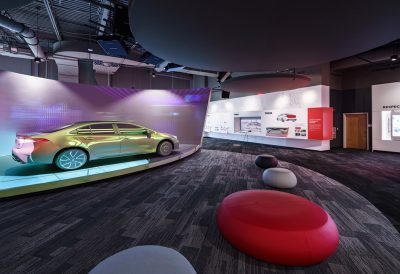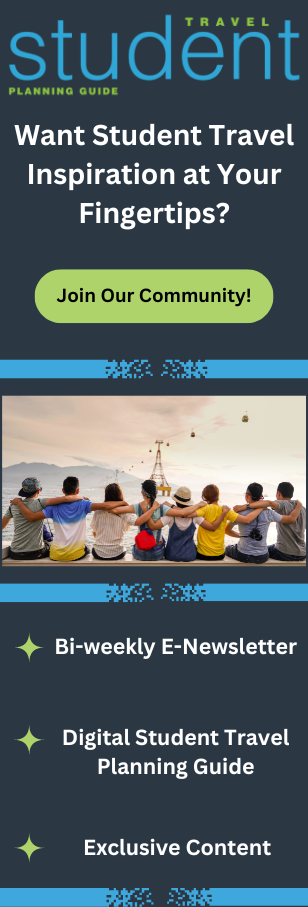Bring incredible science experiments to your living room or virtual classroom.
Virtual STEM learning has never been more accessible. Programs and resources can be found from a number of local museums and universities that are supporting the efforts to continue the progress in STEM education even if your kids and students are learning from home. These eight virtual STEM experiences will encourage and bring excitement to at home learning with fun activities and engaging demonstrations. Students will get the chance to experience what they’re learning and participate in the experience all while online.
Pennsylvania
The Pittsburgh Regional STE(A)M Ecosystem is a program that enhances opportunity to teach and engage students with high quality STEM and STEAM learning. This program represents many organizations including museums, schools, higher education partners and more in developing a regional collaboration to better improve STEM and STEAM learning opportunities for all students. Their K-12 programs and resources include Carnegie STEM Excellence Pathways, which is a free strategic planning aid for teachers, the Math & Science Collaborative, a Allegheny Intermediate Unit program that helps educators better their approaches with curriculum and instruction while supporting students for their future. The ASSET STEM Education program assists schools and educational organizations in acquiring tools, resources and strategies to better teaching approaches and student learning. While students aren’t in school, parents and guardians can further their child’s education with Afterschool Alliance and Project Accelerate. The Afterschool Alliance program provides webinars and activities that your child can explore to expand on their STEM learning for fun. The Project Accelerate is in place to encourage and bring awareness to informal STEM learning that can be done outside of the classroom.
New Jersey
New Jersey Institute of Technology offers Saturday Morning STEM lessons for middle and high school students. This five-class series is meant to introduce and encourage STEM learning while outside of school hours. Their winter middle school engineering series, for fifth through eighth grade students, will focus on Aeronautical Engineering, Bio-Midical Engineering, Environmental Science and Engineering, Engineering Physics and Mechanical Engineering. Their winter series for high school focuses on math and problem-based learning while incorporating algebra topics that are appropriate based on grade-level. Topics like the real number system, quantities and the complex number system are included in these sessions.
New York
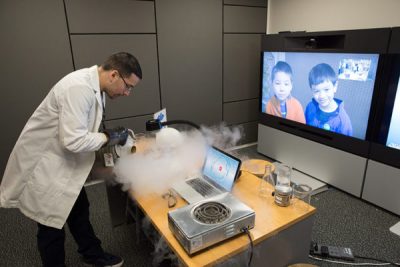
New York Hall of Science
New York Hall of Science offers a variety of STEM-related programs that target specific grade levels. The tailored learning for every age is engaging and appropriate with topics that will excite and encourage exploration. Their “Wow! Science Showcase,” which is appropriate for all grade levels, is a video demonstration of different experiments that showcase science phenomena. Experts, using their own materials and equipment, will demonstrate these scientific wonders on screen while your students can ask questions and discuss during the process. The “Animal Adaptations” learning series, targeted toward a fourth grade level, provides a series of three virtual workshops that align with the New York State and Next Generation Science Standards. The three workshops (“Eyes Have It,” “Cow’s Eye Dissection” and “Gliding Mammals”) offer hands-on approaches for students to learn while challenging themselves to understand the science around them. The “Eyes Have It” unit looks at optical illusions and has experiments to understand how they deceive the eyes. With the “Cow’s Eye Dissection” unit, students can discover the eye to brain connection and compare the human eye to a cow’s eye through a dissection experience. With the “Gliding Mammals” unit, students will get the chance to design a gliding suit out of available materials while learning about force and motion. The New York Hall of Science also offers resources specifically for teachers. They provide strategies for teaching STEM topics that are hands-on and available for virtual learning.
Maryland
The University of Maryland Extension has a large resource page on their website dedicated to supporting STEM education. With links to other websites that teachers, students and parents are able to use, there are so many ways to be involved in the discovery of STEM topics. Many of the websites like Space Place from Nasa, The Science of Cooking and Galaxy Zoo offer interactive games and activities, webinars, blogs, recipes and experiments and so much more.
Delaware
The Delaware STEM Council has resources for parents with their out-of-school learning options. They provide information on afterschool programs, summer camps and websites parents can use to access STEM related content to share with their kids. Links to online libraries of Delaware universities are available that students can use as resources for homework and projects. The resources include tips and strategies for parents to ensure their kids aren’t falling behind in STEM subjects and provide websites and links that students can use to practice STEM related studies outside of the classroom.
West Virginia
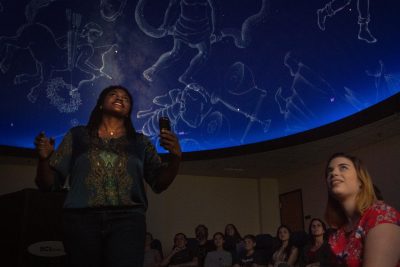
West Virginia University Planetarium
West Virginia University’s Planetarium and Observatory provides a variety of free virtual field trips of the night sky and the option of customizable field trips that will fit in with your curriculum for schools groups, library groups, clubs, scout troops and more. Taking a look at the Solar System, constellations, eclipses and many more night sky wonders is possible and encouraged with this program. Field trips are separated by grade levels, but all ages can participate in the “Ask an Astronomer” program. Students can ask questions about space and what it’s like to be an astronomer. They can also find out how to become one in their “How to Become a Scientist” segment. These virtual field trips are a great way to introduce your students to outer space in an environment where they can talk to an expert and freely discuss and explore their curiosity.
Washington, D.C.
Smithsonian Science for the Classroom is a program targeted for grades one through five that covers four module topics. Each grade has a specific set of modules that is appropriate for their age group. The four module topics are life science, Earth and space science, physical science and engineering design. These modules provide teachers with the tools and resources to introduce these topics and ideas to their students while meeting NGSS Performance Expectations. Modules include links to videos and pictures, activities for students to practice using the information they’re learning, PowerPoints and presentations, additional readings and more. The modules are meant to help guide teachers in the teaching process of these topics and provide fun and interactive visuals and activities for students.
Virginia
The Science Museum of Virginia offers Content for Curious Minds, which is a blog that covers STEM content across the board, along with videos and posts on YouTube and Facebook that show experiments and activities you can follow along with at home. The blog covers history in science and scientists, along with answering science related questions you may have always wondered about, like “Why Do I Feel Sick?” and “Does Stress Really Make Your Hair Turn Grey?” Their YouTube channel is full of demonstrations, tutorials, lecture videos and experiments that anyone can use to explore their curiosities.


